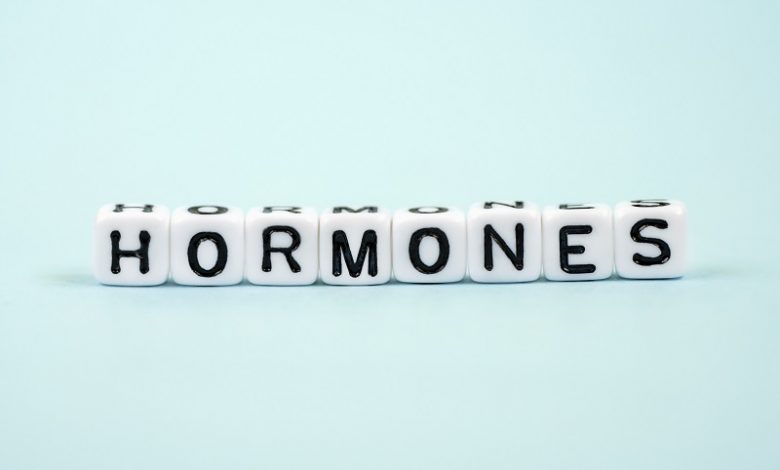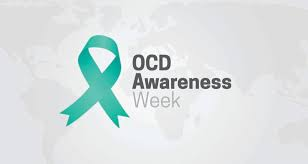
The different types of hormones in our body perform vital functions to regulate certain biological processes. Whether we like it or not, they also affect our behavior and mood. Any hormonal imbalance can cause depression or experience reality in a very different way.
We all like to think that we have full control over our personality, our thoughts, and, of course, any behavior we engage in. However, we are completely submissive to that tiny, powerful, and sometimes chaotic universe run by our hormones. These protein messengers responsible for regulating countless metabolic processes also permeate the brain, regulating conduct and even thoughts.
Hormones are the body’s chemical messengers. They travel through the bloodstream to tissues and organs to contribute to our development, regulate our internal balance and our well-being. However, any small alteration can impact our health and behavior.
Looking at things this way, can seem a little creepy because it destabilizes us not to have total control over our moods. However, it must be borne in mind that many of these hormonal imbalances can be regulated with a healthy lifestyle. Eating properly, playing sports, managing stress properly, and having regular visits to your doctor can be of great help.
We cannot forget, for example, that many people experience malaise, exhaustion, and apathy without knowing that they suffer from thyroid disease. Most of these hormonal imbalances can be treated with medication and by improving lifestyle habits.
Types of hormones and associated moods
Carla is 35 years old and has just had her first child. She has a successful career, a good position in her company, and everything in her life was going perfectly until she gave birth to her baby. At that point something unexpected happened: he couldn’t get out of bed, he didn’t have the strength to hold his son in his arms, he didn’t want to go back to reality and face his life.
Carla suffers from postpartum depression, as well as hypothyroidism. She didn’t choose to feel that way, she’s not a bad mother nor has she given up. This example makes us understand how the imbalance of certain types of hormones can affect our behavior, our emotional state, and our thoughts in a devastating way. Now let’s see what are the main hormones orchestrate our behavior and our mood.
1. Cortisol
Cortisol is the hormone that regulates the states of stress and anxiety. However, its mere presence in our body does not mean that we will almost inevitably lose control or experience a state of alarm. What matters is the level that is released in our body, in balance.
It is a glucocorticoid hormone that is synthesized from cholesterol directly in the glands located above our kidneys. Thanks to it, we get enough energy to get up in the morning, to start our daily activities, and it also helps us to react to situations that our brain interprets as dangerous.
The problem with this type of hormone arises when it is secreted excessively. In these cases, our mind begins to think that we are overwhelmed by problems, life seems too demanding and everything seems to get out of hand.
Science has amply shown that women who experience increased cortisol in their blood during 25 weeks of gestation have a higher risk of suffering from postpartum depression.
2. Oxytocin
Oxytocin is a “multipurpose hormone”. This oligopeptide, composed of nine amino acids, favors most of our prosocial behaviors, such as relationships, sexuality, friendship, the need for care, parenting, breastfeeding. A decrease in our oxytocin levels can cause depression, sadness, helplessness and lead to an equally serious type of process: a lack of empathy.
As revealed in a paper published at one of the British Endocrinological Society’s annual conferences, people with low oxytocin show little empathy towards others.
3. Melatonin among the different types of hormones
Melatonin has always aroused great interest from science. We know that it regulates our sleep cycles and keeps us alert; however, in recent years it has been shown that this hormone also slows down premature aging and acts as a neurological protector.
Melatonin or N-acetyl-5-methoxytryptamine is a hormone synthesized from tryptophan and produced in the pineal gland. An adequate level of this compound promotes rest and also synchronizes the rhythms of our brain neurotransmitters.
A melatonin deficiency not only causes insomnia. We can experience a weakening of our cognitive processes (less attention, memory loss…) and an even greater risk of suffering from neurodegenerative diseases.
4. Thyroid hormones
Thyroid hormones are macromolecules whose precise balance, like it or not, favors our well-being, our mood, and our health. They intervene in practically all the metabolic and functional processes of our body by regulating that endocrine universe where T1, T2, T3, T4, TSH play a fundamental role.
So, in order for the thyroid to carry out its tasks in harmony and with precision, it needs raw materials, such as iodine and vitamin B12. Unfortunately, these are two elements that are usually not abundant in our diet. Any irregularity in the thyroid, whether it is functioning poorly or functioning in excess, will cause ailments such as hypothyroidism or hyperthyroidism.
5. Adrenaline
As they say, anxiety is a monster that feeds on adrenaline. However, is this type of hormone really that bad? Not at all: we are dealing with a polyvalent substance, such as dopamine or oxytocin.
The impact that adrenaline has on our behavior is enormous and deserves to be taken into consideration. Thanks to it, we activate our survival instinct, we are motivated to improve ourselves day by day, to enjoy our relationships, to be productive at work or in sports.
An excess of adrenaline in our body causes a state of anxiety. A deficit in adrenaline levels leads to depression, low motivation, disinterest, apathy, indecision.
6. Endorphins
The endorphins are without a doubt our favorite hormones. There are about 20 types of endorphins in the human body and they are distributed in different areas: in the pituitary gland in particular, in other parts of the brain, and in the nervous system.
These chemical compounds interact with opiate receptors to reduce pain perception and act in much the same way as morphine and codeine. Likewise, a good “torrent” of endorphins means experiencing fabulous states of euphoria and well-being, which usually happens when, for example, we perform tasks that our brain considers “positive”, such as sports, enjoying our friendships, eating, have sex.
Types of hormones: conclusions
There are many other types of hormones that regulate our moods, such as progesterone, testosterone, or catecholamines. However, the ones we have listed in this article are usually the most common, the ones that generate the biggest changes in our body, and the ones that we should undoubtedly take care of with our lifestyle habits.
Likewise, it is important to underline that in case of discomfort, mood changes, or small irregularities both in our body and in our behavior (fatigue, apathy, sudden loss of energy …) we must not hesitate to go to the doctor. Hormonal problems can be treated so that we can regain control of our life.






